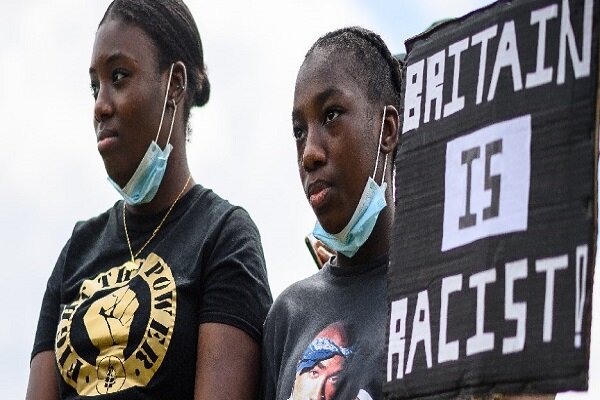Britain far from a so-called post-racial society: activist

TEHRAN – Noting that most of the British media are uncritical when it comes to the royal family, a London-based writer says Britain is far from a so-called post-racial society.
"Much of the media remains wholly uncritical and from neutral when it comes to many issues, including how they cover the royal family," Richard Sudan, a political activist and performance poet, tells the Tehran Times.
"While social media is certainly changing that, mainstream platforms still maintain an incredible amount of influence and unfortunately, often, rather than reporting on things truthfully, they play the role of simply shaping public opinion, rather than encouraging critical thinking and offering true balance and objectivity."
The BBC's coverage of the death of the Duke of Edinburgh has drawn 110,000 complaints, the highest number ever published in the UK about television programming.
Prince Philip died at Windsor Castle on April 9th, 2021, at the age of 99, prompting the corporation to clear its schedules across both BBC One and BBC Two to run a series of mirrored special programs.
The coverage also took over the news channel and BBC radio stations.
However, according to Sudan, "for many, the coverage of the death of Prince Philip was incredibly excessive and also was a whitewash of the many offensive comments he made throughout his life."
Following is the text of the interview:
Q: What is your comment on Prince Harry and Meghan Markle's problems with the royal family?
A: It's clear for many people that as well as having a history rooted in colonialism and the exploitation of Africa, Asia and other parts of the world, that in 2021 the royal family as an institution is riddled with problems that it simply cannot shake. The revelations in the U.S. interview with Prince Harry and Meghan Markle were deeply damaging for the royal family. They were referred to by Markle as 'the firm', which sounds more akin to a criminal organization than a family. The idea that concerns were expressed about the skin color of Harry and Meghan's baby angered many, although frankly, many were not surprised at the allegation of such comments. And, of course, the Prince Andrew scandal and questions about his association with Jeffrey Epstein simply refuse to go away.
Q: To what extent do the royal family and the queen have influence on Britain's political sphere?
A: Although the royal family and the queen do have political power, the prime minister has to ask permission from the queen to form a government, and the queen must also greenlight laws and in theory, has the power to dismiss members of government, the influence they have is largely symbolic. But the power of that symbolism should not be underestimated. Prince Harry for example and others play a key role in bolstering the image of the armed forces, while many people of whatever economic standing, still believe in the idea that the royal family represent and are part of so-called British values, while others of course would argue that they are an out of touch institution which cost the taxpayer a great deal of money, in reality still promoting the idea of the British empire abroad.
Q: Meghan revealed 'concerns' within the royal family about her baby's skin color. Isn't it a case of racism?
A: In my opinion, it is absolutely a case of racism, and it wouldn't be the first time that we have heard claims of racism made about the royal family. If the skin color of the baby was no issue, then why was the question asked, if indeed it was asked? The image of the royal family plays an important role in Britain and whatever people might say, Britain is far from a so-called post-racial society.
Q: What are the official protocols for announcing the death of a senior royal family member in the UK? How did it work for BBC channels when it comes to the death of Prince Philip, husband of Queen Elizabeth II?
A: For many, the coverage of the death of Prince Philip was incredibly excessive and also was a whitewash of the many offensive comments he made throughout his life. The BBC received more than 100 000 complaints about the endless rolling coverage of Prince Philip, and again, some might argue it was used to try to revitalize the image of the royal family, which has undoubtedly been damaged over the last few months.
Q: Could you update us on how the media in countries like the UK and the U.S. are mainstream and, to some extent, shape peoples' tastes and choices?
A: Much of the media remains wholly uncritical and neutral when it comes to many issues, including how they cover the royal family. While social media is certainly changing that, mainstream platforms still maintain an incredible amount of influence and unfortunately, often, rather than reporting on things truthfully, they play the role of simply shaping public opinion, rather than encouraging critical thinking and offering true balance and objectivity.
